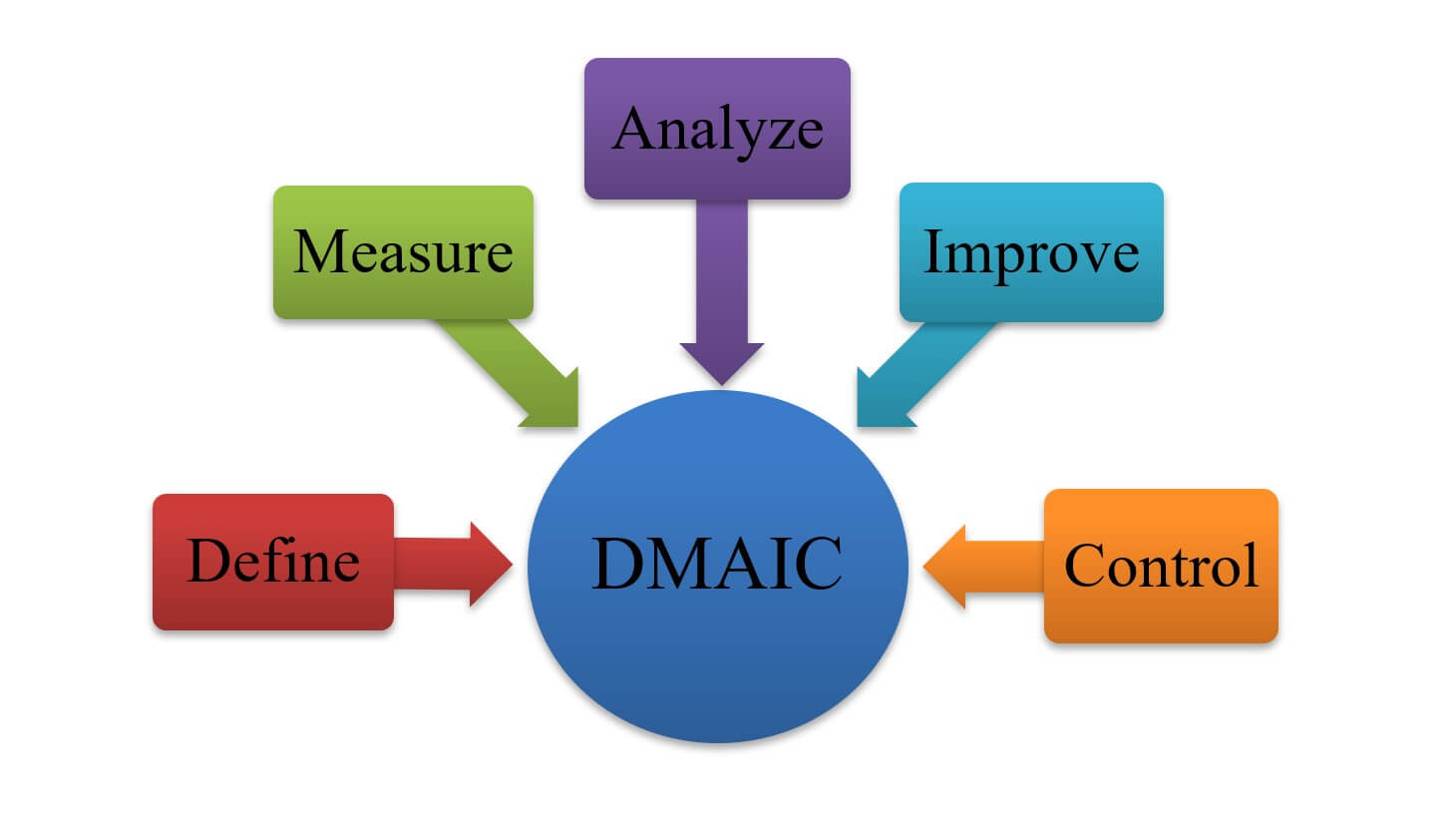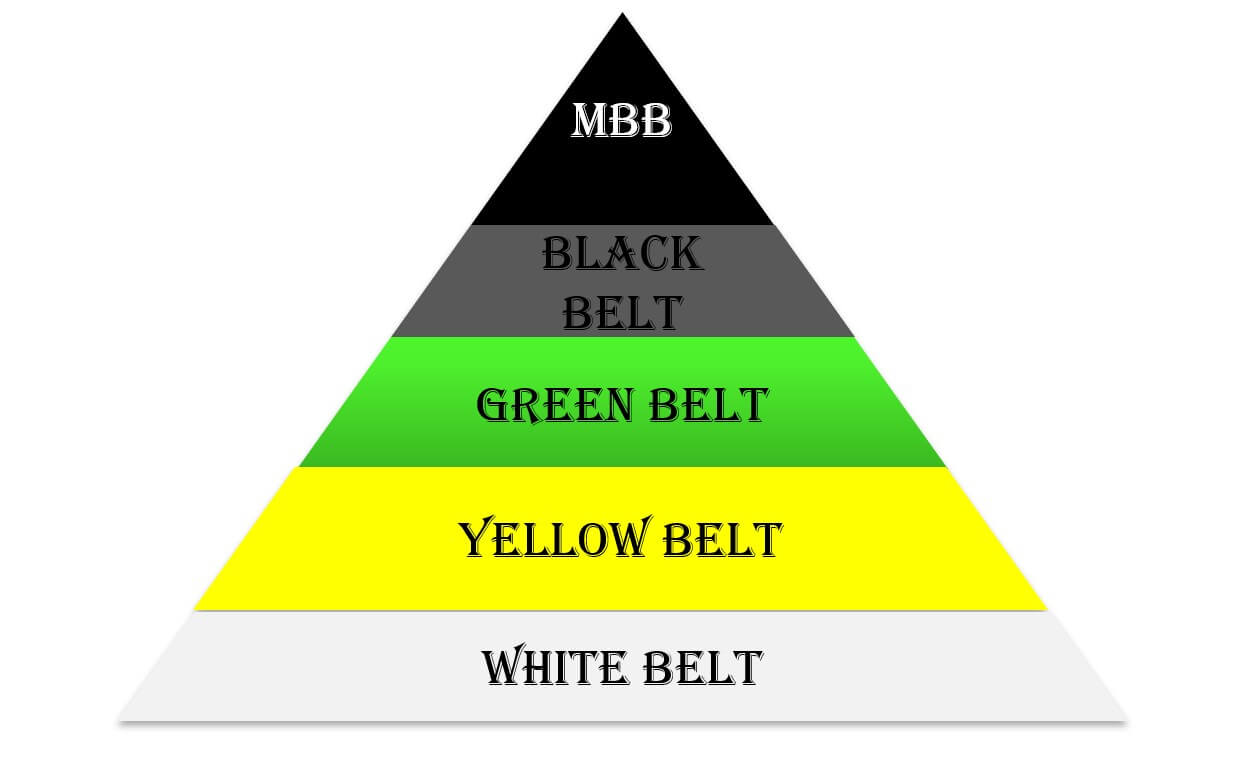It is more crucial than ever for people to be able to think critically, assess issues from several viewpoints, and come up with original and practical solutions in today's fast-paced and data-driven corporate environment.
Six Sigma is a technique for examining business processes to improve their efficacy. To make its processes more efficient and effective, a business that uses this technique goes through a laborious process of reducing the amount of variance in those processes.
After reading this article, you will know what Six Sigma talents are and why they are a terrific complement to your CV or LinkedIn profile. Along with learning about various membership kinds, accessible Six Sigma certification levels, typical Six Sigma responsibilities, and the abilities required for success in the industry. Learn this useful concept and use Lean Six Sigma to enhance your business operations.
How does Six Sigma work?
Organizations employ the LSS technique and methodology to enhance company operations and boost productivity. It is frequently utilized in manufacturing or financial services that deal with much data. LSS seeks to lower product or process flaws while boosting overall production effectiveness.
Six Sigma initiatives come in various forms, each with objectives and specifications. Typical tasks involve lowering product faults or streamlining production operations. Process improvement and quality assurance programs are also a part of LSS, and they work to identify and eliminate the sources of quality issues in current systems.
Any organization that seeks to cut manufacturing costs while still, satisfying consumer demands may utilize LSS to boost revenues. Because it incorporates crucial ideas from Lean Manufacturing, Quality Control, and statistical analysis into a single simplified method, it has gained a lot of popularity.

Who are Six Sigma Professionals?
One who has mastered the LSS process is referred to as a Six Sigma professional. They comprehend the idea and are fully aware of the underlying ideas. They may put these ideas into practice at work to increase productivity.
They must have a thorough grasp of the process and be able to communicate effectively with all parties involved. This requires communicating ideas clearly and effectively while listening to others. A LSS expert should feel at ease working with individuals from various disciplines and viewpoints.
Managers, project managers, or quality engineers frequently work as Six Sigma experts.
However, a LSS professional may be anyone participating in any element of Six Sigma.
A six sigma expert will be well-versed in LSS and its relevant tools, procedures, and measurements.
Additionally, they will be knowledgeable about LSS criteria, industry standards, and best practices.
How do Six Sigma Skills work?
1. Hard and technical skills
The technical and complicated abilities needed to manage a LSS project are referred to as LSS skills. These abilities encompass data analysis, root cause analysis, and problem resolution and vary from statistical analysis to quality control.
There are two typical perspectives on six Sigma abilities. The first relates to the technical abilities required to lead a LSS project. Strong analytical abilities (such as problem-solving and data analysis), business insight (such as recognizing client demands, leading change, and managing people), and expertise in leading major projects are some examples (e.g., being able to follow a plan).
The alternative approach to look at Six Sigma talents is as technical skills, which include technical proficiency (such as in systems engineering, IT operations, or software development), tool and technique knowledge (such as in spreadsheets or statistical software), and competency in specific disciplines (e.g., in statistical methodology).
2. Soft Skills
Six sigma soft skills are the capacity to think creatively, speak effectively, and sympathize with others. These traits can be acquired via training and experience, but they must also be natural for efficacy. LSS soft skills may be seen as the collection of talents that enable people to adapt successfully to various scenarios. As a result, they differ from hard talents, which may be acquired through formal education or work experience.
LSS soft skills come in various forms, each with advantages and disadvantages. The most typical ones are communication, confidence, judgment, and empathy. Each is essential in its own right and plays a significant part in ensuring that people may prosper in any circumstance or setting.
The Top 8 Six Sigma Soft Skills That Professionals Need
· A positive outlook
A positive attitude is the most crucial Lean Six Sigma soft skill needed by a Six Sigma specialist. When you have an optimistic outlook, you can find the good in everyone and everything. You can view things objectively and recognize the potential in everything. Professionals in the Six Sigma field must have a positive outlook to be receptive to fresh concepts and approaches. They might also be more receptive to criticism and feedback.
· Leadership Capabilities
Every LSS project requires strong leadership capabilities. They are essential for everyone's inspiration and motivation and the team's cohesiveness. Having a clear vision for your project and expressing it to all parties involved is crucial. It's also critical to be able to appreciate and reward the contributions of all project participants. In summary, leadership is one of the essential talents for Six Sigma initiatives.
· Excellent Communication Skills
For Six Sigma, practical communication skills are crucial. To collaborate effectively on a project and communicate with their manager, Six Sigma experts require excellent communication skills. Through practice and education, one may improve their communication abilities. Six Sigma experts should learn how to pay close attention, talk effectively, and ask questions to demonstrate their understanding of the situation.
· Negotiation Techniques
Every Six Sigma expert has to be proficient in Lean Six Sigma negotiation techniques. You may obtain what you want in practically any scenario by using crucial negotiation skills. Salary, perks, vacation time, and other issues are all negotiable. Although it's not always straightforward, negotiating may be pretty fruitful.
· A solid grasp of business process
The LSS skill set requires a Six Sigma specialist to comprehend and execute complex business processes successfully. An essential initial step is to comprehend the parts of a business process, and this understanding must be supported by knowledge of the industry. Understanding the value chain of the business, how the strong influence of its clients, and how this affects the business are all necessary. A Six Sigma expert may learn how the company operates and spot any problems by solidly understanding these components.
· Management Knowledge
Being a successful LSS professional requires having strong management abilities. You must be able to distribute duties, manage your time wisely, establish a strong rapport with your team, and settle issues when they arise to be a successful manager. In addition, a competent manager can maintain composure under pressure and recover quickly from failures.
· Adaptability
The capacity to swiftly and effectively adjust to changing circumstances makes adaptability a crucial Six Sigma capability in the Lean Six Sigma skill set. For instance, if you are working on a project that combines hardware and software, you must be able to rapidly get familiar with the many technologies that both teams use and collaborate well with them. Being adaptable also involves having the capacity to pick up new abilities quickly and being prepared to assume more responsibility as your career develops.
· Ability to Solve Issues
A professional in LSS must have the ability to solve problems. Using these talents, you may overcome obstacles and deal with issues in your professional and personal lives. A solid problem-solving mentality is one of the most crucial soft skills for every Six Sigma expert. It involves taking a step back, evaluating the circumstance, and developing a solution that will be most beneficial to all parties.
Additional Qualifications for Becoming a Six Sigma Professional
For individuals who wish to get a more comprehensive grasp of the approach and how to use it in their organization, obtaining a Six Sigma Black Belt Certification is a highly prized credential. The following are some common Lean Six Sigma job skills:
Although becoming a LSS professional requires various Lean Six Sigma work abilities, many employees begin as associates or senior associates.
A LSS expert should know the ideas and concepts behind the LSS approach and have hands-on experience using them in a commercial setting.
Additionally, they must feel at ease working in a team setting and be able to speak clearly too all staff members.
Finally, to meet project deadlines, they should be able to take the initiative and manage their time well.
What Credentials Should a Six Sigma Expert Have?
An excellent method to show that you are an expert in a particular industry is to obtain certifications. Additionally, before hiring you, businesses and other organizations frequently want certificates. So it makes sense to obtain a certification as soon as feasible if you want to work in an area that does.
Among them is the LSS Black Belt certification. This certification demonstrates your thorough knowledge of Six Sigma principles and techniques. This accreditation is ideal for you if you want to develop your company.
This accreditation benefits your company, but it's also a fantastic method to show your abilities and commitment at work.

Conclusion
You ought to have a solid grasp of what a Six Sigma design is and how it might help your business by this point. Also, you should be suitable to fete the pivotal liabilities needed for a successful Six Sigma deployment and understand the abecedarian ideas bolstering process enhancement. Let's look at this.
Tolerance is one of the most critical LSS job chops you'll need when working on a Six Sigma design. As mentioned, Six Sigma systems aren't quick and easy to apply. They bear careful planning, prosecution, and monitoring. To succeed, you'll need to be patient in both the planning and prosecution phases.
It's also important to be patient while staying for the results, blights to be set up, blights to be removed, or advancements to be made. You need to be patient while observing the goods of your advancements.






